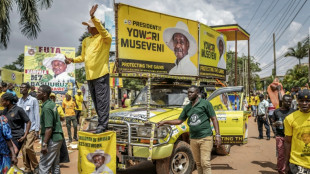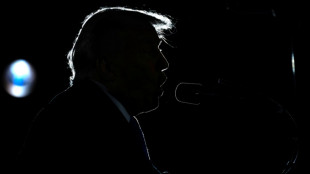
-
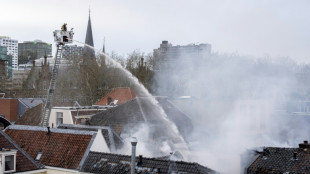 'Gigantic explosion', fire in Dutch city of Utrecht, four hurt
'Gigantic explosion', fire in Dutch city of Utrecht, four hurt
-
Twenty-six charged in latest basketball gambling scandal

-
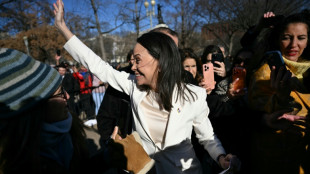 Venezuela's Machado meets Trump for 'positive' talks despite snub
Venezuela's Machado meets Trump for 'positive' talks despite snub
-
NBA Europe 'must respect tradition', says commissioner Silver
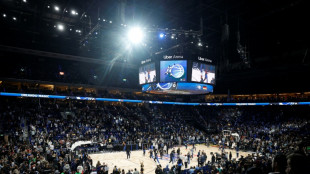
-
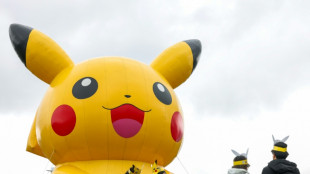 Thieves steal Pokemon cards in armed robbery at US store
Thieves steal Pokemon cards in armed robbery at US store
-
French Olympic champion Papadakis claims she was under partner's 'control'

-
 Fury over Grok sexualized images despite new restrictions
Fury over Grok sexualized images despite new restrictions
-
US says Iran halts executions as Gulf allies pull Trump back from strike
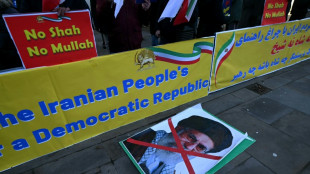
-
 Frank says Spurs taking 'small steps' in right direction
Frank says Spurs taking 'small steps' in right direction
-
Syrian activist Sarah Mardini acquitted of migrant trafficking in Greece

-
 Goldman Sachs' profits jump on hot merger market
Goldman Sachs' profits jump on hot merger market
-
Platini says Infantino has become 'more of an autocrat'

-
 Scottish Borders, Lake District to grace 2027 Tour de France
Scottish Borders, Lake District to grace 2027 Tour de France
-
Venezuela's sidelined Machado arrives at White House for Trump talks
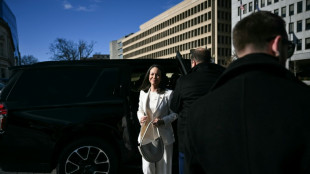
-
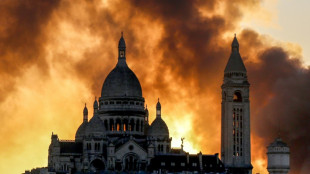 French mother superior bullied nuns at Paris order: inquiry
French mother superior bullied nuns at Paris order: inquiry
-
Cuba pays tribute to soldiers killed in Maduro capture

-
 UK politician joins hard-right Reform just hours after Tories sack him
UK politician joins hard-right Reform just hours after Tories sack him
-
'Gigantic explosion', fire in Dutch city, four hurt
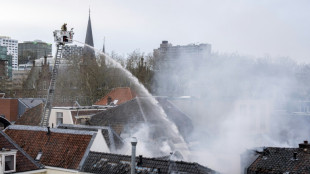
-
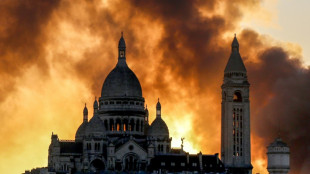 French mother superior bullied nuns at Paris convent - inquiry
French mother superior bullied nuns at Paris convent - inquiry
-
Deprived of heating, Kyiv enters survival mode to beat big freeze
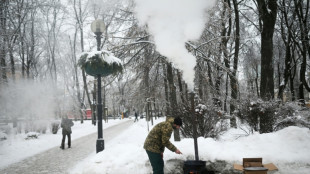
-
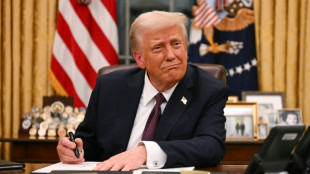 Oil prices slump after Trump eases concerns over Iran
Oil prices slump after Trump eases concerns over Iran
-
French mother superior bullied nuns in Montmartre: report

-
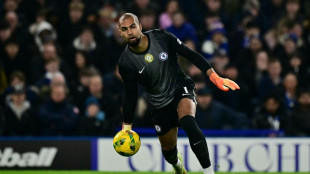 Rosenior refuses to back Sanchez as Chelsea number one
Rosenior refuses to back Sanchez as Chelsea number one
-
Harry due to testify to UK court next week in last tabloid case
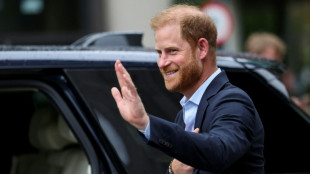
-
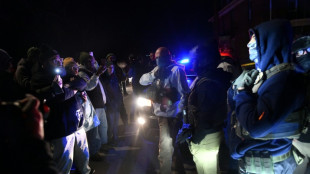 Trump threatens to invoke Insurrection Act over Minnesota protests
Trump threatens to invoke Insurrection Act over Minnesota protests
-
Niger faces dilemma over uranium shipment stuck at airport
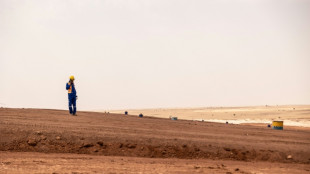
-
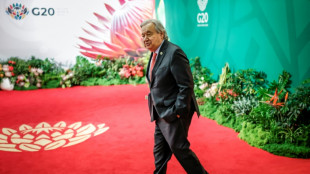 UN chief attacks world leaders putting cooperation on 'deathwatch'
UN chief attacks world leaders putting cooperation on 'deathwatch'
-
Morocco and Senegal prepare for final showdown but Salah's AFCON dream fades

-
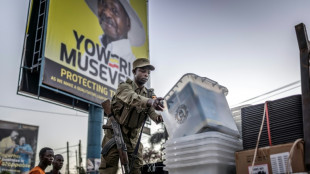 Polls close in Uganda after delays, internet blackout
Polls close in Uganda after delays, internet blackout
-
Forced confession fears as Iran chief justice interrogates protesters
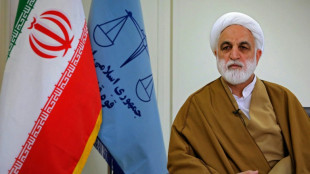
-
 Al-Attiyah closes on sixth Dakar Rally as Ekstrom wins 11th stage
Al-Attiyah closes on sixth Dakar Rally as Ekstrom wins 11th stage
-
Luis Enrique has no doubts about PSG's title credentials

-
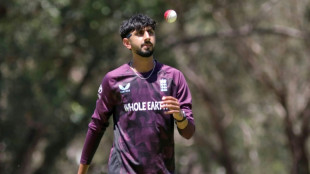 England off-spinner Bashir signs for Derbyshire after Ashes exile
England off-spinner Bashir signs for Derbyshire after Ashes exile
-
Trump convinced 'to give Iran a chance' after threats over protest crackdown
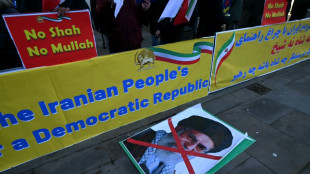
-
 European military mission in Greenland as US aim 'remains intact'
European military mission in Greenland as US aim 'remains intact'
-
UK's Hockney warns moving Bayeux Tapestry would be 'madness'
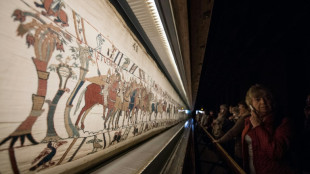
-
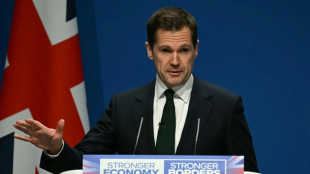 Senior UK opposition politican sacked over 'plot' to join hard-right party
Senior UK opposition politican sacked over 'plot' to join hard-right party
-
Syrians flee Kurdish-controlled area near Aleppo
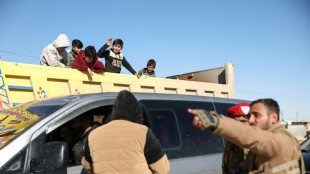
-
 Pressure piles on Musk's X to curb sexualised deepfakes
Pressure piles on Musk's X to curb sexualised deepfakes
-
Chinese dissident artist Ai Weiwei debuts in India

-
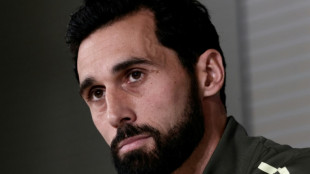 Arbeloa must act fast to avert Real Madrid crisis
Arbeloa must act fast to avert Real Madrid crisis
-
Top Bangladesh cricket official sacked amid World Cup row
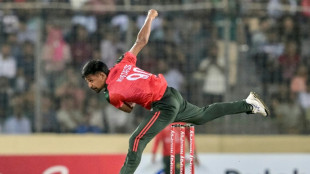
-
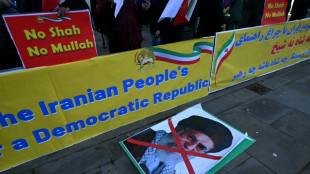 Iran vows to defend itself as Trump says will 'watch it and see'
Iran vows to defend itself as Trump says will 'watch it and see'
-
Spain hosted record 97 mn foreign tourists in 2025
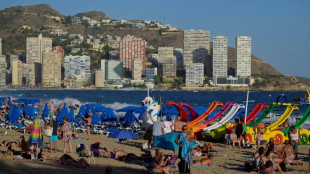
-
 Ex-Olympic swim champion Agnel to face trial on rape claims
Ex-Olympic swim champion Agnel to face trial on rape claims
-
Danish PM says US ambition to take Greenland 'remains intact'
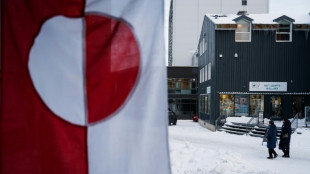
-
 In remote Senegal, chimp researchers escape gold mines' perils
In remote Senegal, chimp researchers escape gold mines' perils
-
Senegal's spear-wielding savannah chimps yield clues on humanity's past
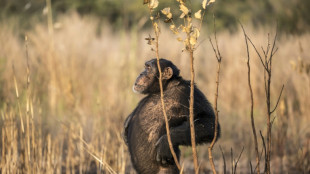
-
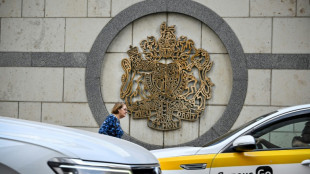 Russia expels UK diplomat accused of being spy
Russia expels UK diplomat accused of being spy
-
Uganda election hit by delays after internet blackout
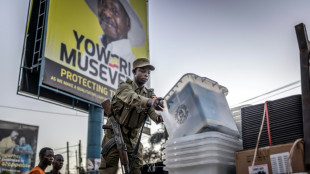
| SCS | 0.12% | 16.14 | $ | |
| CMSC | 0.74% | 23.525 | $ | |
| BCC | 2.6% | 86.295 | $ | |
| BTI | 1.12% | 58.09 | $ | |
| RIO | 0.52% | 86.332 | $ | |
| CMSD | 0.22% | 23.96 | $ | |
| BCE | 0.08% | 24.24 | $ | |
| NGG | 0.61% | 79.365 | $ | |
| RBGPF | -0.26% | 81.36 | $ | |
| GSK | -3.4% | 49.12 | $ | |
| JRI | -0.47% | 13.563 | $ | |
| AZN | -2.5% | 93.99 | $ | |
| RYCEF | -1.12% | 16.95 | $ | |
| BP | -1.92% | 35.145 | $ | |
| RELX | -0.14% | 41.86 | $ | |
| VOD | 0.59% | 13.45 | $ |

Russia's Luna-25 probe crashes on the Moon
The Luna-25 probe, Russia's first Moon mission in almost 50 years, has crashed on the Earth's natural satellite after an unspecified incident during pre-landing manoeuvres, the Russian space agency Roscosmos said Sunday.
The crash comes almost a year and a half into Russia's Ukraine offensive that has seen Moscow isolated, with punishing sanctions that have affected its space industry.
The failed mission comes as several companies and nations have entered a Moon race, and put a spotlight on the Russian space sector's troubles -- from corruption to lack of innovation and partnerships.
Communication with Luna-25 was lost at 2:57 pm (1157 GMT) on Saturday, Roscosmos said.
According to preliminary findings, the lander "has ceased to exist following a collision with the Moon's surface".
"Measures taken on August 19 and 20 to locate the craft and make contact with it were unsuccessful," the space agency added.
It said a ministerial investigation would be opened into the causes of the crash, without giving any indication of what technical problems might have occurred.
With Luna-25, Moscow had hoped to build on the legacy of its Soviet-era Luna programme, marking a return to independent Moon exploration in the face of financial troubles and corruption scandals at the programme and growing isolation from the West.
Valery Yegorov, a former researcher with Russia's space programme who now lives in exile, said the crash would severely affect Roscosmos's future missions, with the next one not planned until 2028 or "even later".
He suggested the probe's failure was linked to electronic problems, possibly resulting from Western sanctions on Moscow.
The Luna-25 launch was postponed several times in the last five years, Yegorov said, "because of sanctions imposed on Russia in response to seizing Crimea".
- Research 'not a priority' -
"Science, fundamental research, some kind of humanistic ideas about space colonisation, about revealing the secrets of the universe, are clearly not a priority right now," said Yegorov, who has denounced the Kremlin's Ukraine offensive.
The 800-kilogramme (1,760-pound) Luna-25 probe was to have made a soft landing on Monday on the Moon's south pole -- which would have been a historic first.
Russia has not attempted to land on a celestial body since 1989, when the Soviet Union's Phobos 2 probe to explore the moons of Mars failed after an onboard computer malfunction.
Roscosmos chief Yuri Borisov had said the venture would be "risky", telling President Vladimir Putin in June that the probability of it succeeding was "around 70 percent".
Luna-25 had been successfully placed in the Moon's orbit on Wednesday after being launched from the Vostochny cosmodrome in the Russian Far East.
- Space race -
But on Saturday, Roscosmos said an "emergency" had been detected during a manoeuvre by the probe before its landing, preventing the operation from being carried out.
Luna-25 had been expected to stay on the Moon for a year, collecting soil samples and looking for water -- an ingredient enthusiasts hope could be used to make rocket fuel for future launches and support potential colonies living there.
Cameras installed on the lander had already taken shots of the lunar surface.
Doubts had already emerged about Russia's long-running space cooperation with the West in the wake of its military campaign in Ukraine.
While Russia has said it intends to use the International Space Station until 2028, the European Space Agency (ESA) has dropped plans to co-operate with Moscow on Moon and Mars missions.
Moscow last landed a probe -- Luna-24 -- on the Moon in 1976, before shifting away from lunar exploration in favour of missions to Venus and building the Mir space station.
Landing Luna-25 successfully would have paved the way for further Russian missions to the Moon, at a time when India and China are launching their own probes and the United States returns to manned missions.
India's competing space probe, Chandrayaan-3, entered the Moon's orbit earlier in August, also with the goal of landing on the south pole.
Only Russia, the United States and China have previously achieved a controlled landing on the Moon.
N.Awad--SF-PST

